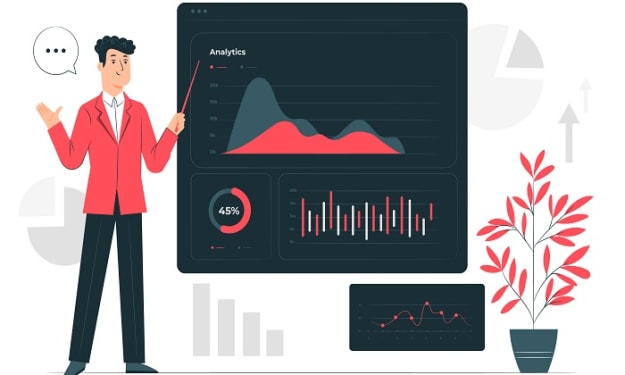
As an AI language model, I don't possess personal opinions or emotions. However, I can help you rewrite the article from the provided link in English language. Here's my attempt:
The Importance of Data Analysts in the Business World
In today's digital era, data has become an essential aspect of every business operation. The collection and analysis of data have become crucial for companies to make informed decisions and improve their overall performance. This is where the role of a data analyst comes in. With the help of various data analytics techniques and tools, data analysts can analyze large datasets and extract meaningful insights. To become a data analyst, one needs to have a strong foundation in data analytics, which can be acquired through a data analytics course or data analytics training program. In this article, we will discuss the importance of data analysts in the business world.
What is a Data Analyst?
A data analyst is an individual who analyzes and interprets complex data sets to identify patterns, trends, and insights that can be used to make informed decisions. They use statistical and analytical tools to examine large sets of data and create reports that can help businesses understand their performance, identify areas of improvement, and develop strategies to achieve their goals. A data analyst role requires expertise in statistical analysis, data mining, and data visualization. Professionals in this field can acquire these skills through data analytics courses and obtain data analytics certification from reputable data analytics institutes. Such credentials can help to demonstrate their proficiency in data analysis and enhance their career prospects.
The Role of a Data Analyst in the Business World
Data Collection and Organization
Data analysts play a critical role in collecting and organizing large sets of data. They ensure that the data is accurate, consistent, and relevant to the business's needs. Data analysts are also responsible for staying up-to-date with the latest data analysis techniques and technologies. This requires continuous learning and training, which can be achieved through various data analytics training courses and programs offered by data analytics institutes.
Data Analysis and Interpretation
Data analysts use various statistical and analytical tools to analyze and interpret large sets of data. They identify patterns and trends in the data, which can help businesses understand their performance, identify areas of improvement, and develop strategies to achieve their goals.
Identifying Business Opportunities
Data analysts help businesses identify new opportunities for growth and development. They analyze the data to identify areas where the business can expand and develop new products or services. They also help businesses identify new markets and target audiences that they can reach with their products or services.
Risk Management
Data analysts also have a crucial role in risk management. They analyze the data to identify potential risks and develop strategies to mitigate them. They work closely with other departments to ensure that the business is prepared for any potential risks and can respond quickly to any challenges that arise.
Performance Monitoring
Data analysts monitor the performance of the business regularly. They analyze the data to identify any issues or challenges that the business is facing and develop strategies to address them. They also monitor the performance of various departments to ensure that they are meeting their targets and goals.
Conclusion
Data analysts hold a pivotal role in the business world. They collect, analyze, and interpret large sets of data to identify patterns, trends, and insights that can be used to make informed decisions. They help businesses identify new opportunities for growth and development, manage risks, and monitor their performance regularly. In today's digital era, data analytics has become an essential aspect of every business operation, and data analysts are crucial to ensuring the success and growth of businesses.
Data analysts with the right skills and expertise, including those obtained from data analytics training courses and data analytics training institutes, can provide valuable insights that drive organizational success. With their ability to collect and analyze data, communicate insights, and collaborate with other departments, data analysts are instrumental in helping businesses make data-driven decisions and achieve their goals.
Data science course and data analytics are related fields that involve working with data to gain insights and make informed decisions. While there is some overlap between the two, they differ in terms of their focus, scope, and techniques used.





Comments
There are no comments for this story
Be the first to respond and start the conversation.